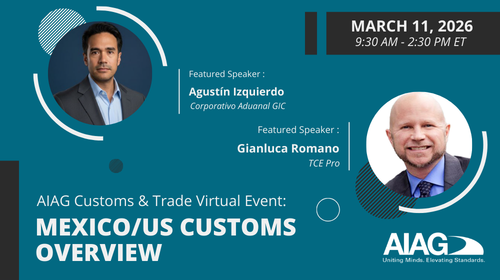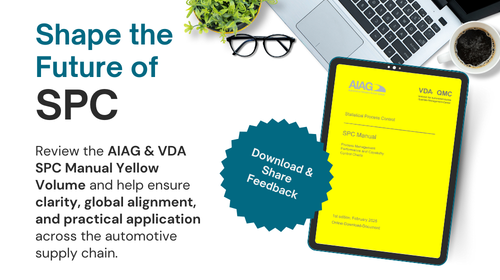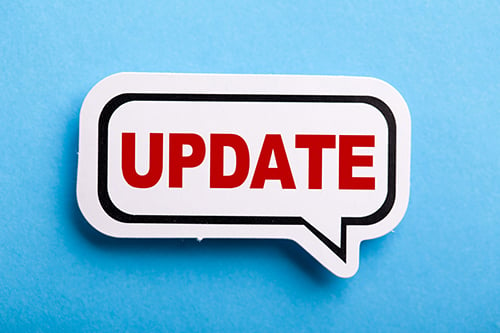At the AIAG Customs & Trade Virtual Event: Mexico/US Customs Overview, March 11, 2026, the automotive industry’s leading minds on North American customs and trade will provide updates on everything from Mexico customs reform and SAT audits to how CTPAT minimizes risk, commentary on geopolitics and trade, and recent amendments to customs provisions for IMMEX operations.
Read MoreIn case you missed it live, you can now access the recording of AIAG’s exclusive webinar, “Circularity in Europe: Answers to Your Questions”with Timo Unger, senior manager at Hyundai Europe.
Read MoreThe European Green Deal
This is part of a series recapping sessions from AIAG’s 2025 Responsible Materials Conference. Registration is now open for the 2026 conference on August 26 in Southfield, Michigan, and virtually.
As Europe pushes forward with an ambitious environmental transformation, the European Green Deal stands as one of the most sweeping policy frameworks of the modern era. During his presentation, “European Union Green Deal,” at AIAG’s 2025 Responsible Materials Conference, Chuck LePard outlined what the initiative means not only for Europe, but also for U.S.-based manufacturers whose products and supply chains intersect with European Union markets.
Read MoreSustainability Data Approval Process
This is part of AIAG's series recapping sessions from the 2025 IMDS, Product Compliance & Sustainability Conference. Registration is now open for the 2026 conference October 7–9 in Novi, Michigan.
It’s time to treat sustainability data with the same rigor as manufactured parts. That was the message RSJ Technical Consulting President Michael Wurzman delivered to manufacturers navigating the fast-evolving world of sustainability reporting at AIAG’s 2025 IMDS, Product Compliance & Sustainability Conference.
Read MorePackaging Extended Producer Responsibility Update
This is part of AIAG's series recapping sessions from the 2025 IMDS, Product Compliance & Sustainability Conference. Registration is now open for the 2026 conference October 7–9 in Novi, Michigan.
Extended producer responsibility is rapidly reshaping how companies manage packaging across the United States, with new state laws shifting financial and operational burdens onto producers.
Read MoreRegistration Now Open for AIAG’s Virtual Event on the Latest in Customs & Trade, a Mexico/US Customs Overview
AIAG has announced a virtual event for North American automotive customs and trade professionals, featuring a variety of experts from the U.S., Canada, and Mexico. Scheduled for March 11, 2026, the event is called AIAG Customs & Trade Virtual Event: Mexico/US Customs Overview. Topics range from Mexico customs reform and SAT audits in Mexico to how CTPAT minimizes risk, geopolitics and trade, and recent amendments to customs provisions for IMMEX operations.
Read MoreThe AIAG & VDA SPC Yellow Volume introduces a refreshed SPC Manual designed to bring clarity and harmonization across the automotive industry. This stakeholder review is your opportunity to help shape the future of SPC guidance.
Read More
With more than 25 years of manufacturing experience and a long history of engaging with AIAG initiatives and events, we’re proud to announce that Toni Hollis, Senior Global Quality Systems Manager at Lear, has been named co-chair of the AIAG Quality Steering Committee (QSC).
Read MoreIf You Work with Bar Steel, This Manual Is Essential
Bar steel performance directly impacts product safety, durability, and customer confidence. When variability, gaps in oversight, or inconsistent qualification practices creep in, the risks multiply quickly — across programs, plants, and the entire supply chain.
That’s why the AIAG CQI-32 Bar Steel System Questionnaire isn’t optional guidance — it’s a critical industry benchmark.
Read MoreWhen critical information stays trapped in handoffs, spreadsheets, portals, and one-off formats, the cost shows up in delays, rework, expedite activity, and slower response when issues surface. The industry is moving toward more consistent, governed approaches that support shared visibility, while maintaining appropriate control.
Read More





.png)


.png)


